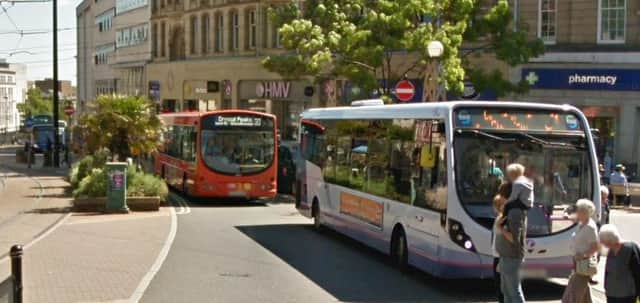Sheffield Council set to decide on major issue of introducing a clean air zone next week


A special meeting of the co-operative executive is scheduled for Tuesday, October 26, to address two major issues: the pollution charging zone and the pedestrianisation of Pinstone Street.
The council announced plans for a Clean Air Zone in 2018 but delayed implementing it due to Covid-19, saying the situation in 2020 was “dramatically different” to the one in which original proposals were developed.
Advertisement
Hide AdAdvertisement
Hide AdIn a statement released in September last year, the council said it would review the impacts of Covid-19 on business, transport and air quality and decide if the same action was needed or if it could avoid charging people by introducing other measures.
The council said air pollution contributes to 500 deaths a year in Sheffield and parts of the city exceeds the legal nitrogen dioxide limits.
As a result, both Sheffield and Rotherham were told by the Government to reach legal limits in the shortest possible time.
Pre-Covid, Sheffield Council proposed a Clean Air Zone covering the inner ring road and the city centre, including Park Square and the A61 / Parkway junction.
Advertisement
Hide AdAdvertisement
Hide AdTaxis and LGVs which do not meet the emission standards would be charged £10 a day and coaches, buses and HGVs, £50 per day, under these original plans.
The council said it was not planning to charge private cars at that time as they make up 80 per cent of road traffic but contribute 50 per cent of pollution. By comparison, buses, HGVs and taxis are responsible for half of Sheffield’s air pollution but make up only 20 per cent of traffic.
It was looking to offer support for taxi drivers by way of interest-free loans for replacement clean vehicles, a grant for diesel hackney carriages to be converted to liquid petroleum gas and asking the Government for around £50 million to help with upgrading and replacing high polluting vehicles.
The emissions standards the council proposed were:
Taxis: ultra-low emissions (hybrid, electric and hydrogen fuel cell) or liquid petroleum gas (LPG).
LGVs and minibuses: Euro 6 diesel or Euro 4 petrol
Buses and coaches: Euro 6 diesel
HGVs: Euro 6 diesel